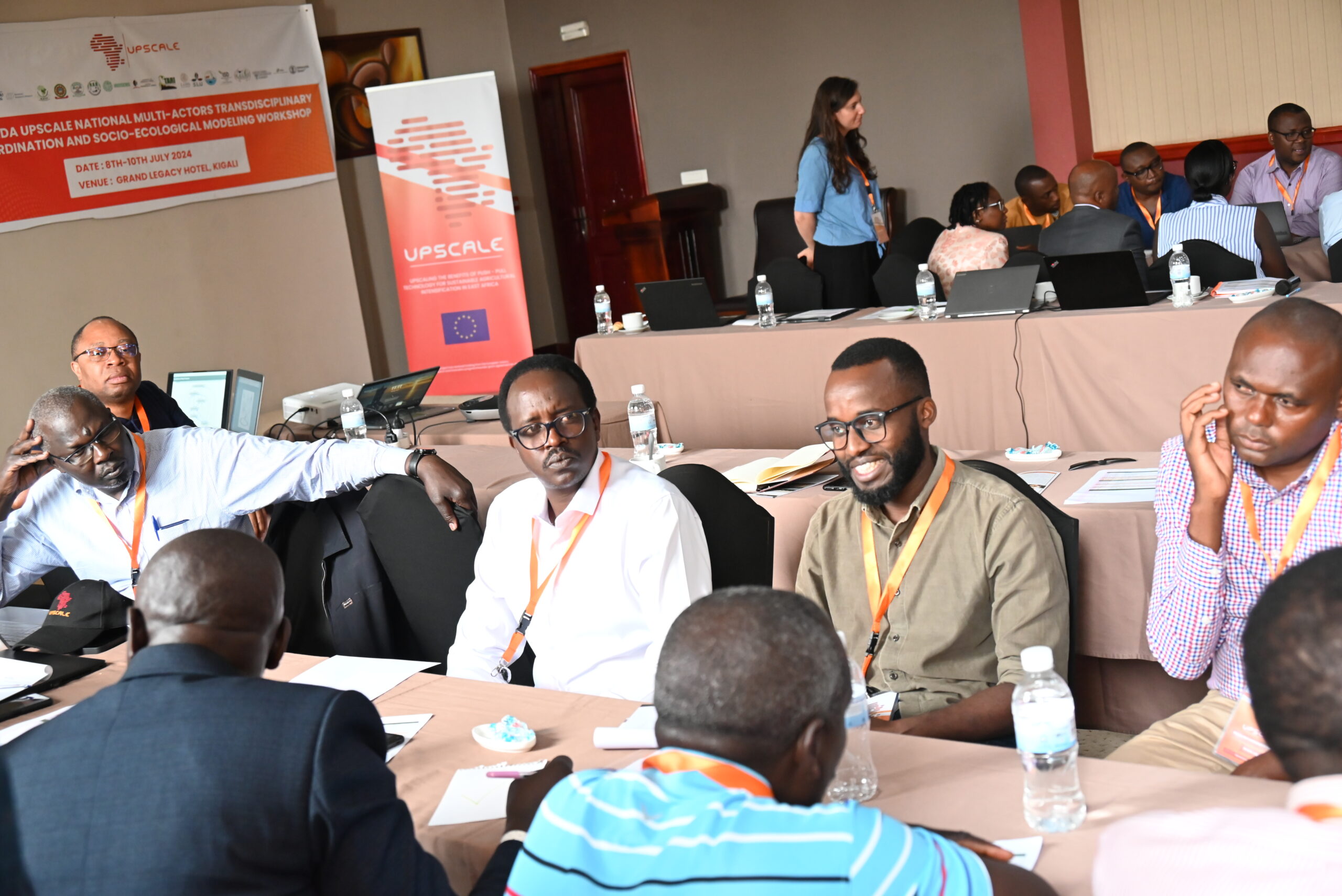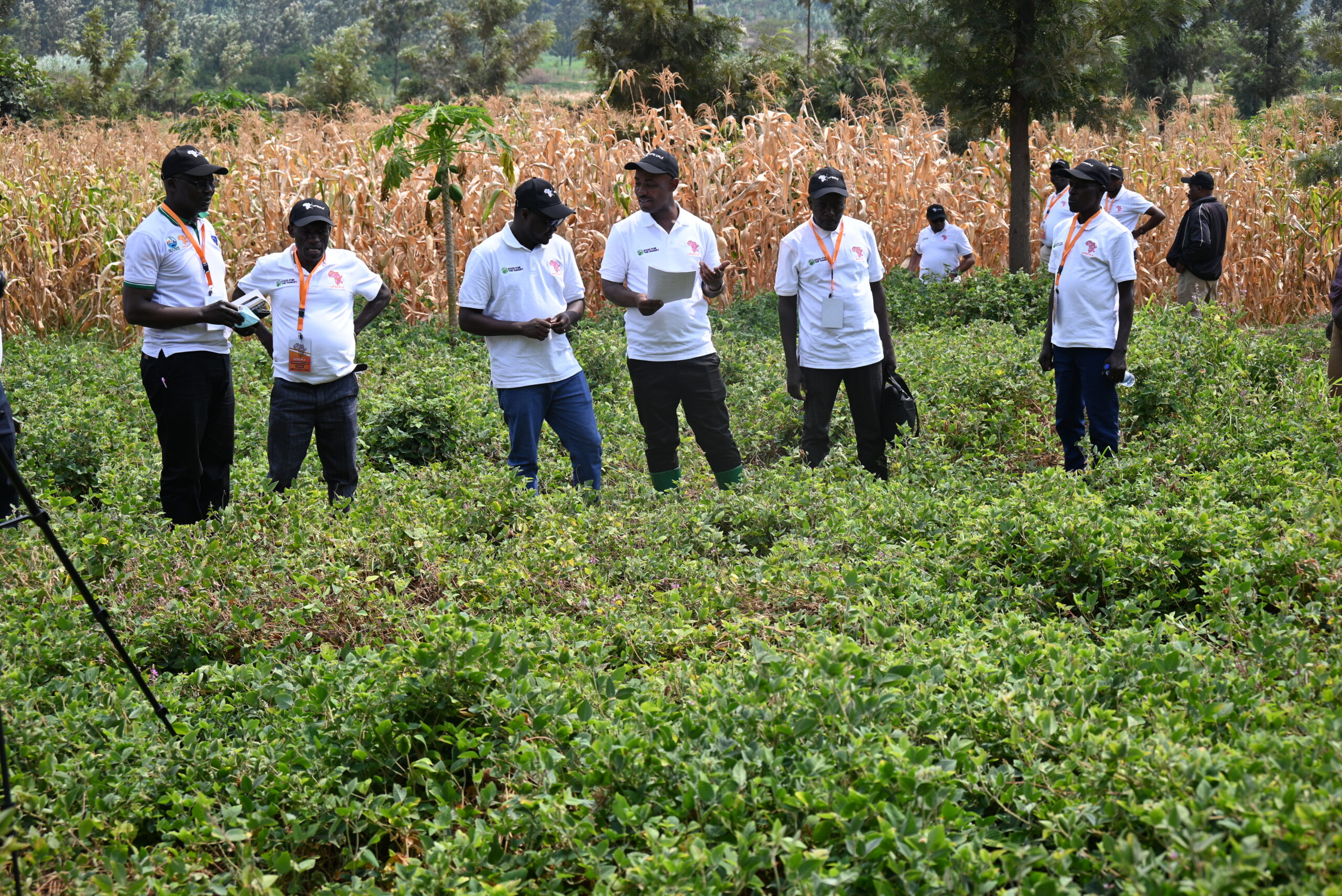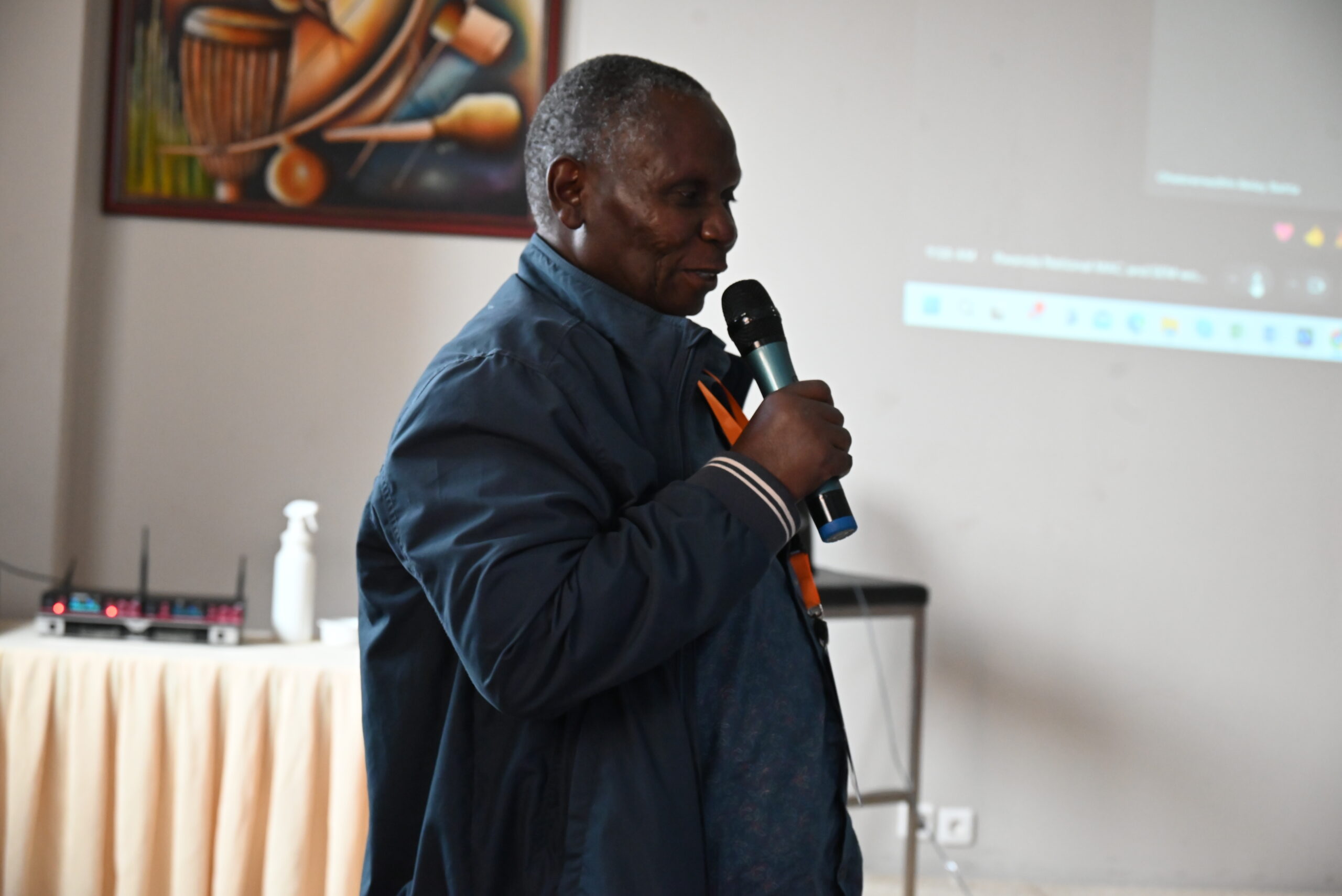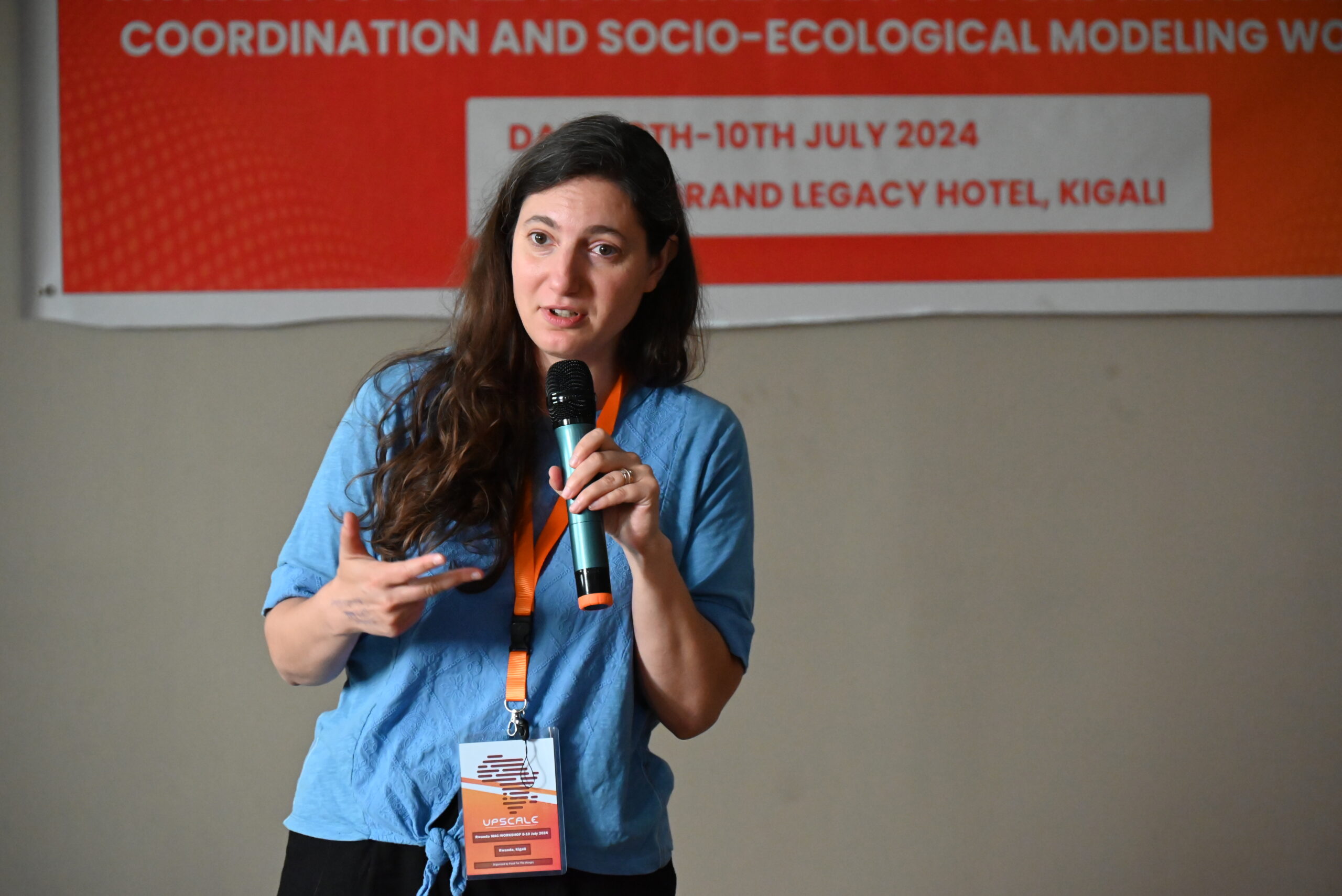The 4th National MAC Meeting in Rwanda and socio-ecological validation with stakeholders
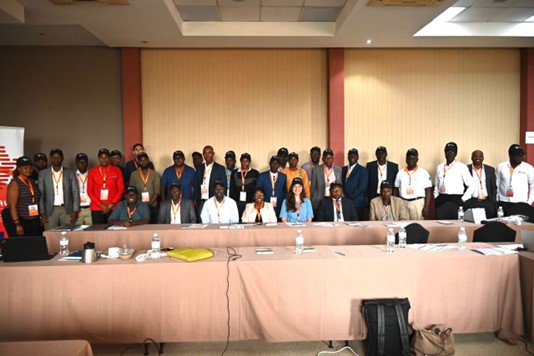
The meeting brought together different agriculture value chain players ranging from farmers (producers) to policymakers (Ministry of Agriculture and RAB). The 40 people attended including Rwanda MAC members, Maseno University as the lead of WP1, WP5 Leaders, UPSCALE Project coordinator and other high-level professionals. The 4th National MAC Meeting was officially opened and closed by the Director General of RAB.
The overall objective of this event was to promote the benefits of push-pull, exchange ideas and good agroecological practices, share project updates, challenges, and solutions and monitor the progress of upcoming activities. Everything listed aimed to increase awareness and adoption of push-pull technology in the wider farming communities of Rwanda.
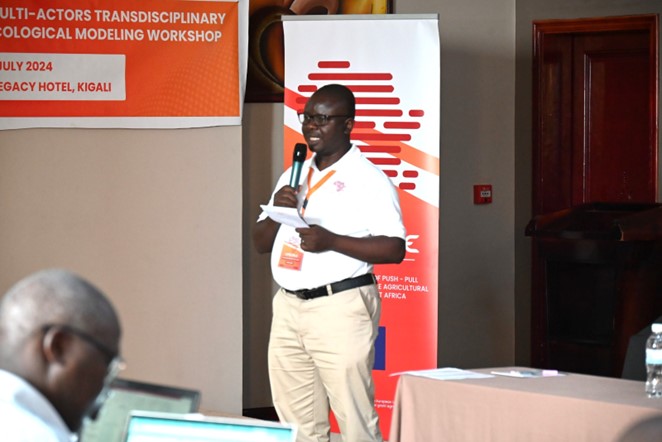
The meeting was organized in two sections. The first one was organized in the form of in-person meetings and group discussions and the second one was in the form of field visits to the push-pull sites in Gatsibo District.
The first section was held by the Food for the Hungry with the presentation encompassing achievements, ongoing activities and recommendations from Rwanda MAC. Besides FH, Maseno University presented through a group discussion facilitated by Dr Fredrick Aila and looked at the validation of the country scorecard tool. The second section, the visit, aimed to see the progress of technology adoption, execution of recommendations from previous visits and some of the challenges that farmers meet daily.
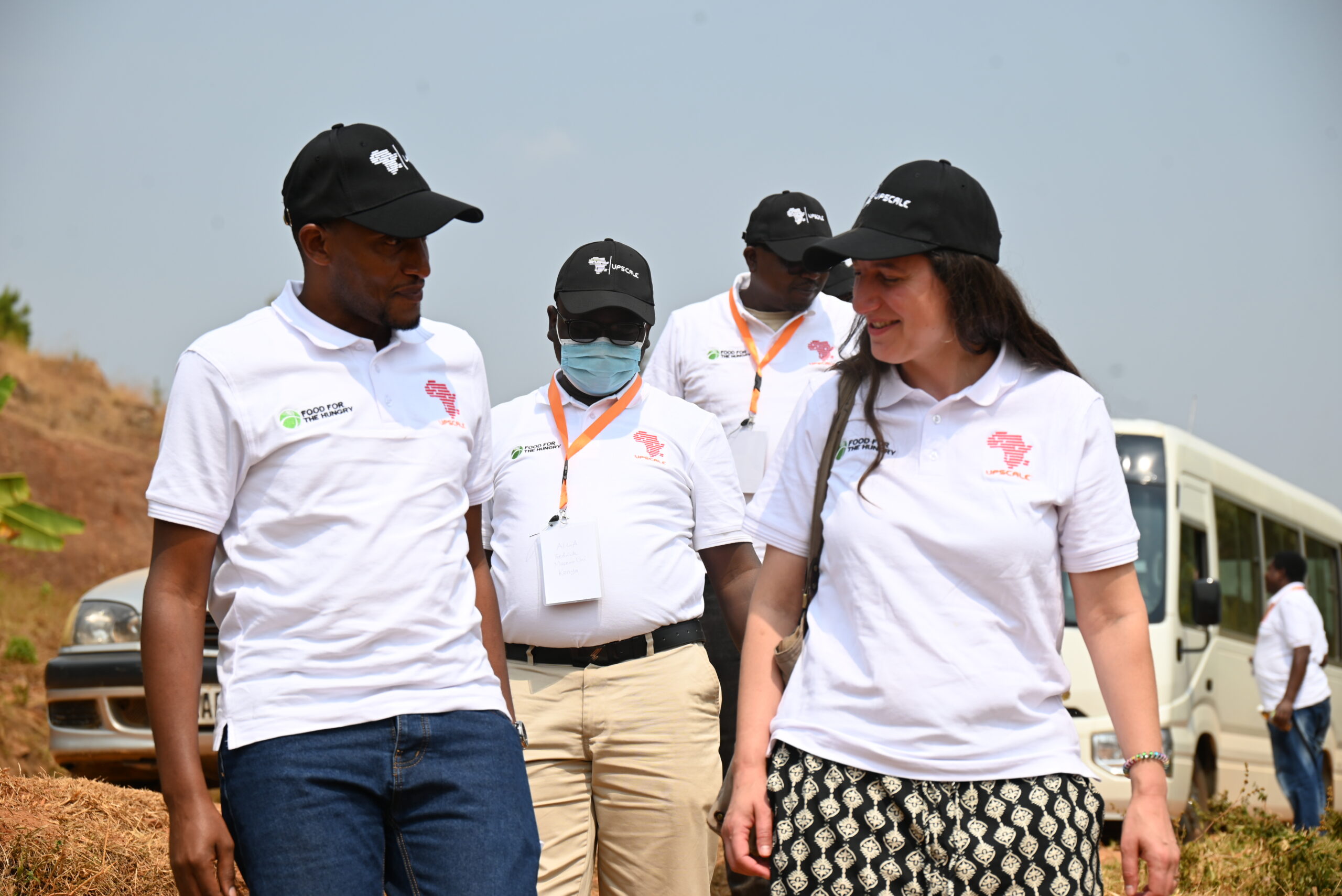
Regarding the previous recommendation from MAC, farmers argued not to look at PPT as technology for maize so that farmers are not confined to maize growing only. Many farmers embraced this and pledged to keep the push-pull field while rotating with other crops. The farmers who have started establishing PPT plots with other crops like Climbing beans and tomatoes said that PPT is a great way of defeating a black aphid, that attacks beans.
In the context of UPSACLE Socio-ecological model validation with stakeholders, it has been noted that all the identified members are interested and affected to a certain extent by push-pull technology. At the same time, the majority receives benefits from it, and the conflict is minimal. This analysis demonstrates that the community is fully committed to advocating for push-pull technology as evident from the challenges faced.
